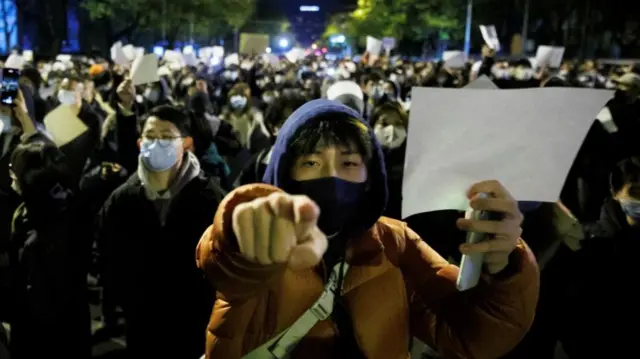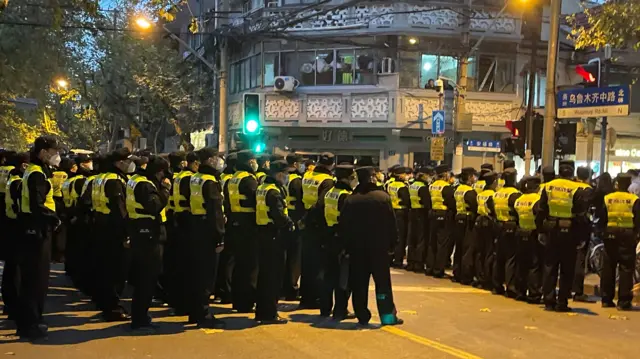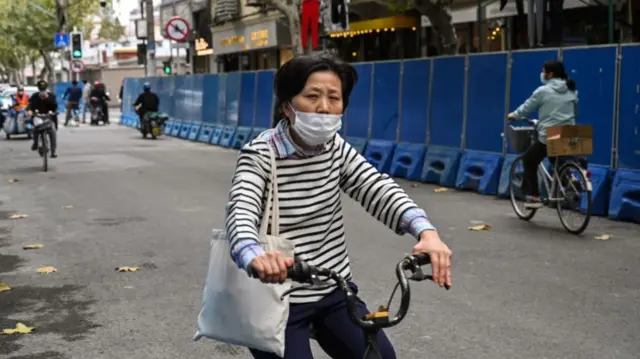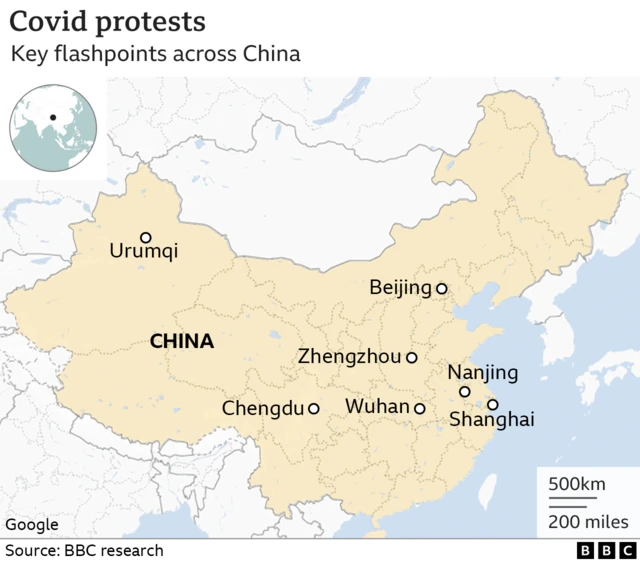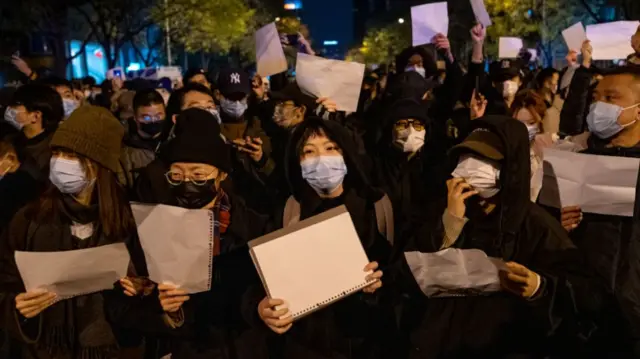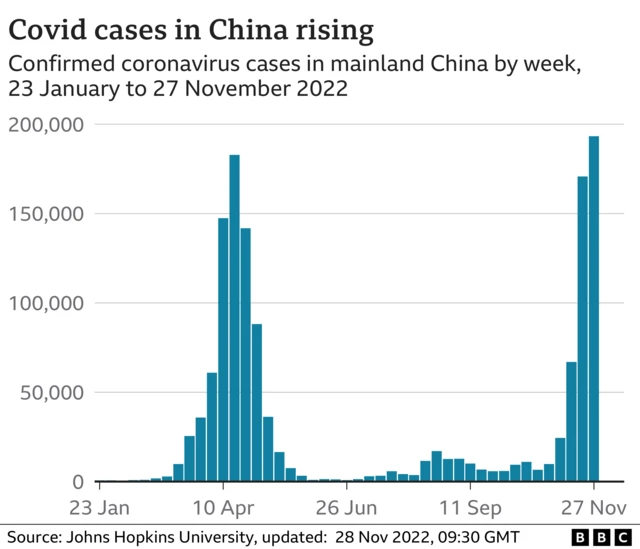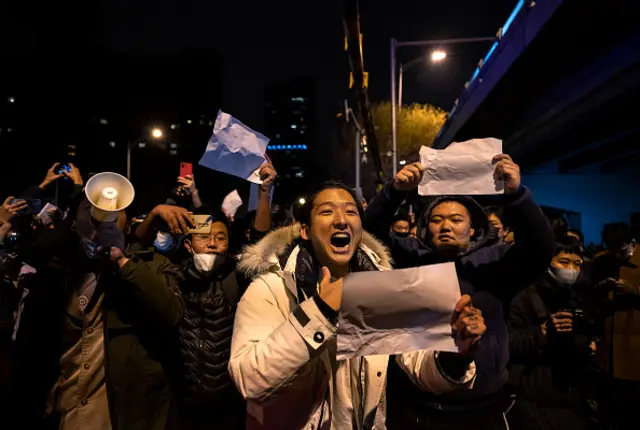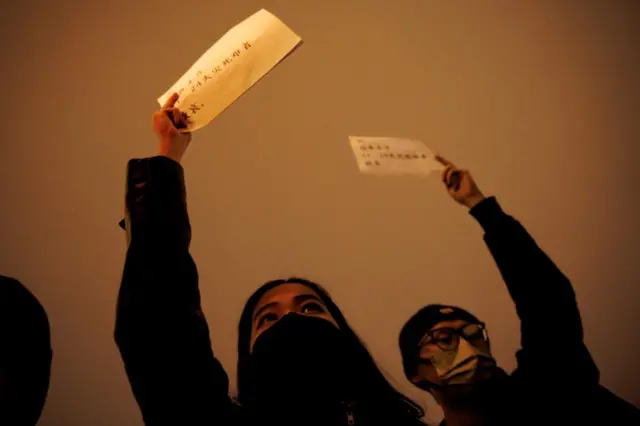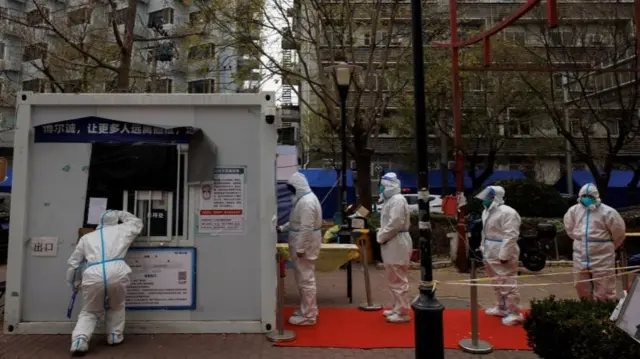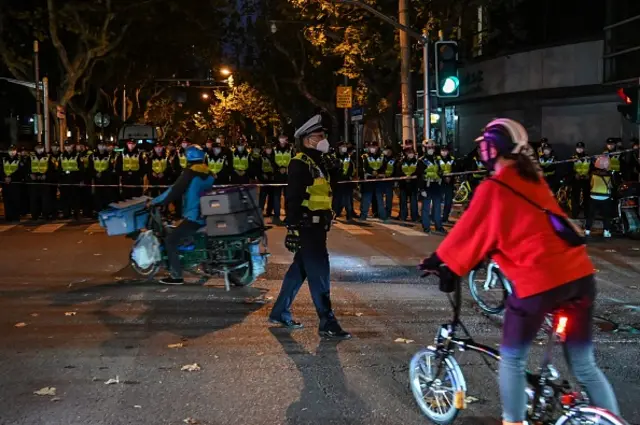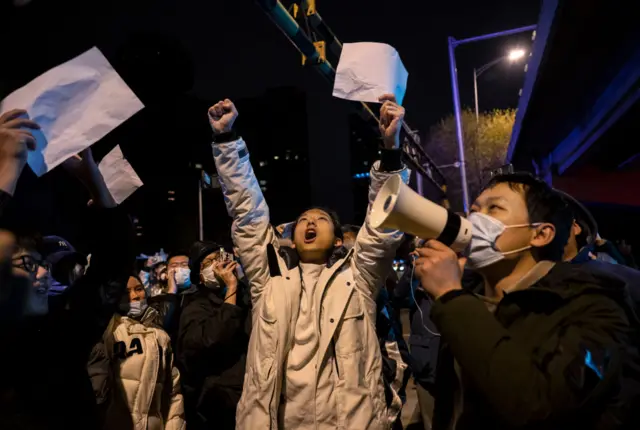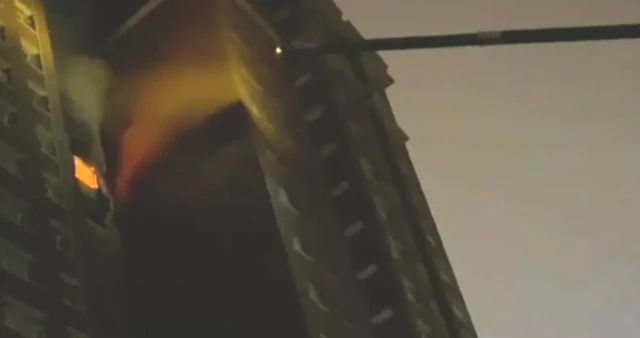Censorship cat-and-mouse as netizens find creative ways to bypass blockspublished at 13:21 GMT 28 November 2022
 Kerry Allen
Kerry Allen
BBC Monitoring, Chinese Media Analyst
Since this weekend’s protests, censorship has gone into overdrive on Chinese social media platforms, to stop people seeing and discussing them.
Tens of millions of posts have been filtered from search results, while media are muting their coverage of Covid-19 in favour of upbeat stories about the World Cup and China’s space achievements.
Blanket censorship began with the names of cities and specific streets where demonstrations were staged.
Only some 900 comments can now be seen since the beginning of time mentioning “Shanghai”, all from government accounts – so even innocuous posts about regular life are filtered.
Previously there were close to 40 million posts available to view. Only four results show for “Urumqi Road”, the site of a huge protest in the city.
As Chinese netizens have long found creative ways to bypass government filters, censors are engaged in a cat-and-mouse game to filter cryptic ways people discuss these movements. Searches for "blank sheet of paper" and "white paper" are now also only sparingly showing results.
Censorship won’t deter frustrated netizens (a nickname for people using Chinese social media apps like WeChat and Weibo) from commenting on their exhaustion with China’s Covid-19 measures.
After three years of strict measures, and the number of lockdowns only increasing in the country, it’s been evident in recent weeks that people have never felt more frustrated with strict lockdowns - especially seeing the rest of the world gathering to celebrate the World Cup without masks or social distancing.
